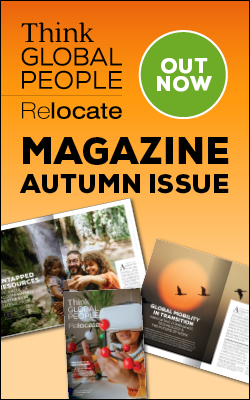The UK and India have agreed to introduce a new "bespoke" immigration route that will allow thousands of young professionals from each country to spend up to two years working in the other's nation.
The agreement was reached after Boris Johnson and Narendra Modi held a virtual prime ministerial summit at which the nations agreed to an enhanced trade partnership intended to pave the way for a full free trade agreement (FTA), which London and Delhi will attempt to agree in the autumn.
Under the new migration scheme, up to 3,000 people a year, aged between 18-30, from each nation will be able to live and work in the other country for up to 24 months.
The Young Professionals Scheme will operate in a similar way to the current youth mobility programmes available to young people from Australia, Canada, Hong Kong, Japan, New Zealand and South Korea. Under these schemes, applicants must have £2,530 in savings and be able to demonstrate they were capable of supporting themselves in the UK.
British Home Secretary Priti Patel said: "This landmark agreement with our close partners in the
Government of India will provide new opportunities to thousands of young people in the UK and India seeking to live, work and experience each other's cultures."
In a statement, the Home Office in London said the young people taking part in the scheme must have at least three years' training relevant to their work - at university level or equivalent - and be able to "express themselves in the language(s) of the host country". They will not be allowed to take any children or other dependants with them.
The summit between the British and Indian prime ministers also reached what Downing Street described as an "historic" commitment to a '2030 Roadmap' to deepen cooperation on health, climate, trade, education, science and technology, and defence over the next decade. Mr Johnson said: "The UK and India share many fundamental values. The UK is one of the oldest democracies, and India is the world's largest. We are both committed members of the Commonwealth. And there is a living bridge uniting the people of our countries.
"In the last week, the British people have stepped up in their thousands to support our Indian friends during this terrible time (because of the Covid-19 pandemic) in a demonstration of the deep connection between the UK and India.
"This connection will only grow over the next decade as we do more together to tackle the world's biggest problems and make life better for our people.
"The agreements we have made today mark the beginning of a new era in the UK-India relationship."
Even before the summit was held, Mr Johnson had announced an enhanced trade partnership with India, with a £1 billion deal that is expected to create more than 6,500 jobs in the UK.
The agreement includes an investment of more than £533 million from India in sectors including health and technology, notably a £240 million investment by the Serum Institute of India, which will support clinical trials, research, and possible manufacture of vaccines.
Lord Karan Bilimoria, president of the
Confederation of British Industry (CBI), said: “The enhanced trade partnership will usher in a new era of UK-India relations and shows the world the strength of our relationship.
"Paving the way for a future UK-India free trade agreement and setting the ambition of more than doubling bilateral trade from the current level of £23 billion by 2030. As leaders in tech and innovation this enhanced partnership will unlock opportunities for businesses, boost job creation and growth across the country.
“Through joint efforts and collaborations we’ve seen the best from our two nations in the fight against Covid. As India battles with a devastating outbreak we’ll need that same spirit and solidarity to overcome this wave."
International Trade Secretary Liz Truss told
Sky News the new trade agreement was "a win-win" for both countries as it would drive jobs and growth both in India and the UK.
She said negotiations on a full free trade agreement with India would begin in the autumn, with a view to a deal being agreed "as soon as possible".
She added: "We'll be looking for early wins that we can gain for both countries. For example, there are very high tariffs on cars into India and products like whisky into India - we want to see those tariffs lowered or removed to benefit industries here in Britain.
"And, similarly, there are products from India that we want to see here in the UK."
Mr Johnson added: "In the decade ahead, with the help of new partnership signed today and a comprehensive free trade agreement, we will double the value of our trading partnership with India and take the relationship between our two countries to new highs."
Read more news and views from David Sapsted.
Subscribe to Relocate Extra, our monthly newsletter, to get all the latest international assignments and global mobility news.Relocate’s new Global Mobility Toolkit provides free information, practical advice and support for HR, global mobility managers and global teams operating overseas. Access hundreds of global services and suppliers in our Online Directory
Access hundreds of global services and suppliers in our Online Directory
©2025 Re:locate magazine, published by Profile Locations, Spray Hill, Hastings Road, Lamberhurst, Kent TN3 8JB. All rights reserved. This publication (or any part thereof) may not be reproduced in any form without the prior written permission of Profile Locations. Profile Locations accepts no liability for the accuracy of the contents or any opinions expressed herein.

 5 May 2021
5 May 2021 Access hundreds of global services and suppliers in our Online Directory
Access hundreds of global services and suppliers in our Online Directory






























